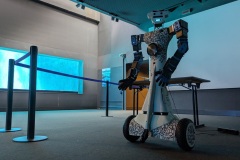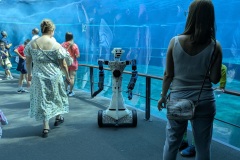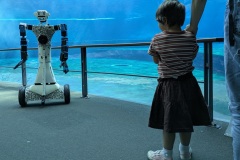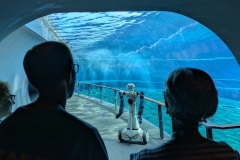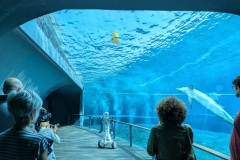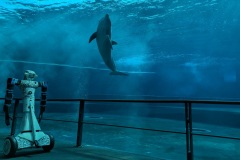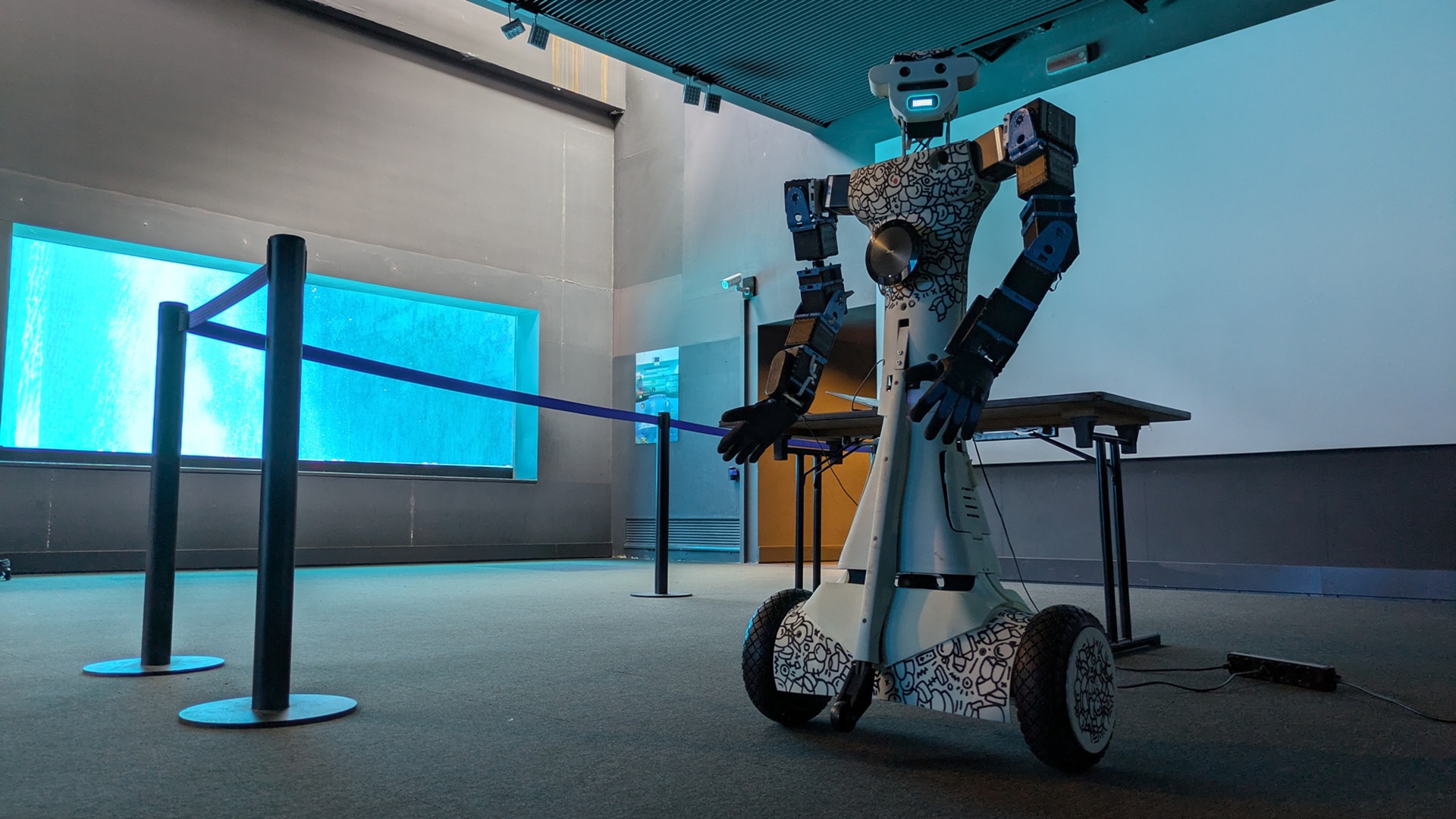
On June 10, 2025, the Genoa Aquarium hosted an innovative event that combined science, technology, and environmental education. Throughout the day, from 9:30 AM to 6:00 PM, Alter-Ego—the humanoid robot developed by the Italian Institute of Technology (IIT)—interacted with the public, sharing information about cetaceans as part of a pilot initiative under Spoke 4.
Standing about 140 cm tall and moving on wheels, Alter-Ego navigated the Cetacean Pavilion, specifically the area dedicated to research and conservation projects. Equipped with multi-jointed hands and advanced artificial intelligence, the robot provided scientific explanations, suggested respectful behaviors toward animals, and encouraged questions from visitors.
The interaction was fully autonomous, thanks to the collaborative efforts of IIT’s “Soft Robotics for Human Cooperation and Rehabilitation” unit and the “Cognitive Architecture for Collaborative Technologies” team.
The robot was able to recognize visitor groups, adapt content based on audience behavior, and, at the end of the conversation, invite participants to complete a questionnaire to evaluate the effectiveness of the interaction.
Francesco Rea, project lead at IIT, commented: “We are working to ensure the robot can interact with groups of people. From a research perspective, this is a major challenge—understanding how a group behaves in front of a robot. The AI we’ve implemented is capable of interpreting group dynamics and suggesting activities, such as observing bottlenose dolphins up close while maintaining respectful behavior. These types of suggestions are crucial in the field of human-robot interaction.”
Meanwhile, the CNR’s Institute for Research on Sustainable Economic Growth (IRCRES) monitored the social and economic impact of the experiment. The ultimate goal was to explore how robotics and AI can be integrated into cultural and tourism contexts—such as ports and aquariums—which are key areas of focus for Spoke 4.
This pilot project strengthened the long-standing collaboration between IIT and the Genoa Aquarium, who have been working together for years on initiatives related to scientific outreach and bio-inspired robotics. Testing Alter-Ego in a setting driven by nature offered a unique opportunity to assess how technology can engage the public.
Roberta Parodi, Head of Educational Services at the Aquarium, said: “We accepted IIT’s proposal because we’re very curious to see how an AI-powered humanoid robot could enhance our visitors’ experience. In an environment where nature is the protagonist, such a technological tool can inspire curiosity and bring people closer to our mission: education, conservation, and research. We’re confident that our visitors appreciated Alter-Ego.”
The experiment marked an important step toward integrating robotics into places of culture and science, offering new insights into the role of AI in complex social environments. The results will help shape future applications within the field of smart tourism—one of the key focuses of RAISE Spoke 4.


